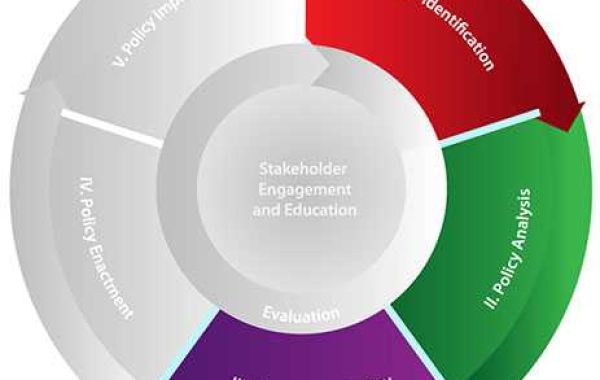Executive Summary
The USA has the highest number of immigrants globally, with nearly 40.7 million individuals born out of the country. The undocumented population is approximately 11.4 million people. The challenges for them are immense, but owing to DACA, these individuals can enjoy several benefits. Despite these benefits, there have been attempts to stop the program, which led to legal challenges in court and injunctions for the proposed stoppage. With this discussion, it should be evident that the program has benefits that far outweigh the challenges. The benefits of the program include relieving undocumented immigrants the constant stress of being deported since they have no documents. Such worries have also been identified to contribute to negative mental health. The program allows undocumented individuals to work and earn, thus supporting themselves and their families financially. The program has brought significant economic benefits to various states, but all these achievements could also be lost should the program be scrapped. Similarly, the program provides an opportunity for undocumented immigrants to continue their education while working and obtaining valuable experiences to apply in life. Other benefits of DACA give such immigrants the possibility of using banking services as well as having a driver’s license, which is a vital document. However, DACA is just temporary and it does not guarantee citizenship. This program can also be manipulated by whoever is in power. Therefore, while the program should stay, there is need to make it cost-effective, which will give it flexibility in choosing the deserving applicants.
Background: The Deferred Action for Childhood Arrivals (DACA) Policy
The United States has the largest immigrant population in the world. The population of about 40.7 million foreign-born citizens in the USA is four times those living in any other country (Pope 98). However, more than 11.4 million of immigrants, who comprise 3.6% of the country’s entire population, are not authorized (Pope 98). These immigrants face serious numerous challenges as compared to legal immigrants, including the threat of being deported, the ineligibility for legal employment, insufficient documentation for loans, banking services, as well as driver’s license. These challenges present serious economic, health, and social problems for undocumented immigrants. On June 15, 2012, due to these unique issues for such people, President Obama used an executive order to announce the Deferred Action for Childhood Arrivals (DACA). In the announcement, the Department of Homeland Security was directed to accept DACA applications from unauthorized immigrants who came to the USA as children below the age of 16 and who were not over 31 by June 15, 2012 (Pope 98). Unfortunately, the Trump Administration has attempted to end the DACA program. This policy paper describes the benefits of implementing DACA and the need to support it instead of repealing it.
Analysis
Support for the DACA Program
DACA has received support from various stakeholders, including media advocates, civic and activist groups. Some of the recent court rulings in the USA have disagreed with the Trump Administration’s attempt to end DACA. For instance, in the ruling made in the Federal District Court for the District of Columbia, Judge John D. Bates noted that the decision of the administration to terminate the program was founded on the grounds that could not be explained, and that they could not prove that DACA was unlawful (Jordan). Injunctions in Brooklyn as well as in San Francisco ordered that the program should not end (Jordan). The results from the courts of law further highlight why the policy should remain in place.
Undocumented immigrants are not deported under DACA policy. More than 800,000 undocumented youths live in the constant fear of being deported (Krishnakumar et al.). Living and working in the United States are the privileges that DACA accords to eligible individuals. Therefore, closing the program would mean that these individuals would have to return to their homelands (Dickerson). The stress of having to return to their countries of origin might cause serious health problems and mental health issues among immigrants. Notable, these issues include chronic exhaustion, fear, low-esteem, and panic as well as low moods (Villavincencio). Since Trump has become the US president, many undocumented individuals fear that they would eventually be turned in to the authorities if they seek medical care (Villavincencio). Therefore, retaining the program is a good way of ensuring undocumented immigrants that they always have a home in the USA and that they do not have to worry about being removed from their homes.
In the DACA program, undocumented immigrants are accorded the opportunity to apply for new jobs and study simultaneously. New jobs are created every day in the USA, but some of them require only eligible citizens to apply. Before the DACA program was introduced, undocumented immigrants were considered ineligible for some of these new jobs because of their citizenship statuses. However, since the implementation of the program in 2012, they have been granted the opportunity to apply for such jobs opportunities. Moreover, youths registered in the DACA program are allowed to work while studying. This arrangement allows them to work for longer hours and earn higher. Moreover, such an opportunity also arises with the two-year renewable period provided in the DACA that allows already employed undocumented immigrants to continue their uninterrupted career development and growth. However, if the current administration succeeds in stopping the program, such individuals will have to leave their jobs and go back to their countries of origin. At the same time, if the current DACA recipients were to lose their work permits, many states would suffer huge setbacks in the economies. California, for instance, would be suffer the most (Krishnakumar et al.). Thus, if DACA workers were removed, the estimated loss in gross domestic product would be $11.6 billion for California, $6.3 billion for Texas, $2.6 billion for New York, $2.3 billion for Illinois, $1.6 billion for New Jersey, and $1.5 billion for Florida (Krishnakumar et al.). Arizona would lose $1.3 billion, North Carolina - $1.2, Washington - $1.1 billion, and Georgia - $1 billion (Krishnakumar et al.). Therefore, the potential job losses and subsequent economic losses would be massive, which implies that DACA should continue for undocumented immigrants.
In the DACA program, undocumented individuals have the chance to continue their education. The majority of individuals in the program work and study at the same time. Therefore, ending the program would mean that such individuals will not be able to continue their education. However, some of these issues could be resolved through education. Since the start of the program, a number of undocumented individuals, most of who are under the age of 25, have acquired a bachelor’s degree, (Krishnakumar et al.). If the program were to be stopped, they would lose everything, including education, which is an unfortunate situation as they would want to obtain education that would help them aim for a better future (Shalby and Kim). Therefore, the high relevance of this program for youths pursing their educational goals implies that it should not be scrapped.
The DACA policy allows undocumented individuals to have bank accounts. Bank services that are vital for undocumented individuals include savings, lending money, giving overdrafts, and providing various pieces of advice. However, banking services are majorly offered to legitimate customers, especially the owners of bank accounts. Apparently, the permission to have bank accounts is a major gain for undocumented immigrants since they allow them to pay their utility bills or essential services that life would be quite difficult without. Finally, bank accounts are important for employed individuals as their salaries are channeled through these accounts.
If the DACA program remains in force, undocumented immigrants will continue to hold their driver’s licenses. Having a driver’s license is extremely important in the USA since it gives the freedom to drive, which enhances one’s mobility. Holding a driver’s license is a proof that an individual is licensed to drive. This document also serves as an official personal identification document. In fact, a holder can use it to open bank account, to enroll in a school, apply for loans and government benefits. Therefore, this significant gain should not be eroded; instead, it should be enhanced even further.
Arguments Against DACA
DACA is temporary, which means it does not provide a path for the eventual citizenship for non-citizens. Notably, immediately after President Obama had left office, the protections provided by DACA started to lose support, especially by the current administration. It is possible that all recipients of DACA could be deported. Moreover, information given during application to the program could be shared with the immigration and customs services in case of a change in policy, which will further increase the vulnerability of recipients. Thus, the temporary nature of DACA does not solve the problem of immigration.
DACA can be used as a political campaign tool. Opponents of the program, such as the current administration, would seek to end it because they argue against it. On the other hand, supporters would advocate its continuation. Therefore, the program’s existence depends on which group is in power, as those who find it appropriate as a political tool would retain it, while those who do not find it necessary discard it. However, with an enlightened populace, activists that support the continuation of the program are bound to keep fighting for it through campaigns and court proceedings.
Recommendations
DACA should be made more affordable. Currently, many individuals are eligible for the program, but only about 800,000 have been offered DACA. Cost is a serious obstacle for those seeking to apply. Moreover, the filling fee is recurring, which only exacerbates the burden. Therefore, improving affordability could increase initial as well as renewal application rates. At the same time, fee exceptions as well as the use of credit cards for making payments could increase enrolment. Increasing affordability will encourage more qualified individuals to apply and to show that many undocumented individuals live in the country, and they should be considered seriously.
There should be more flexibility as well as discretion in choosing the applicants who meet the requirements. In particular, individualized assessments should be considered instead of an inflexible approach that examines the circumstances of an applicant in general. Different applicants with their backgrounds have varied needs that warrant specific considerations. Generalized considerations result the rejections of those who deserve the participation in the program, which may contribute to its ineffectiveness. Therefore, assessment should be based on whether applicants work full-time, give primary care, or encounter numerous obstacles in enrolment.
Conclusion
DACA has been a successful program, with positive impact on nearly a million of undocumented immigrants. The benefits range from improved self-sufficiency, increased educational opportunities, and as well as the ability of individuals to achieve their career goals. Therefore, the program is a turning point as well as a measure of hope, particularly in the malfunctioning immigration system of the USA. Building on the achieved progresses implies that the current as well as future administrations should remain vigilant to ensure that the country’s immigration policy is not only fair and just but also equitable. Even though there is a setback with the current administration regarding DACA, its benefits far outweigh its weaknesses, so the current administration should consider strengthening this program instead of abolishing it altogether.
I want to express my heartfelt gratitude for taking the time to read my article. Your engagement means the world to me, and I truly appreciate your interest in the topics I've shared. If you enjoyed what you've read so far, I invite you to explore more content on the powerpoint presentation writing service . There's a plethora of articles covering various subjects, and I'm confident you'll find something that resonates with you.








